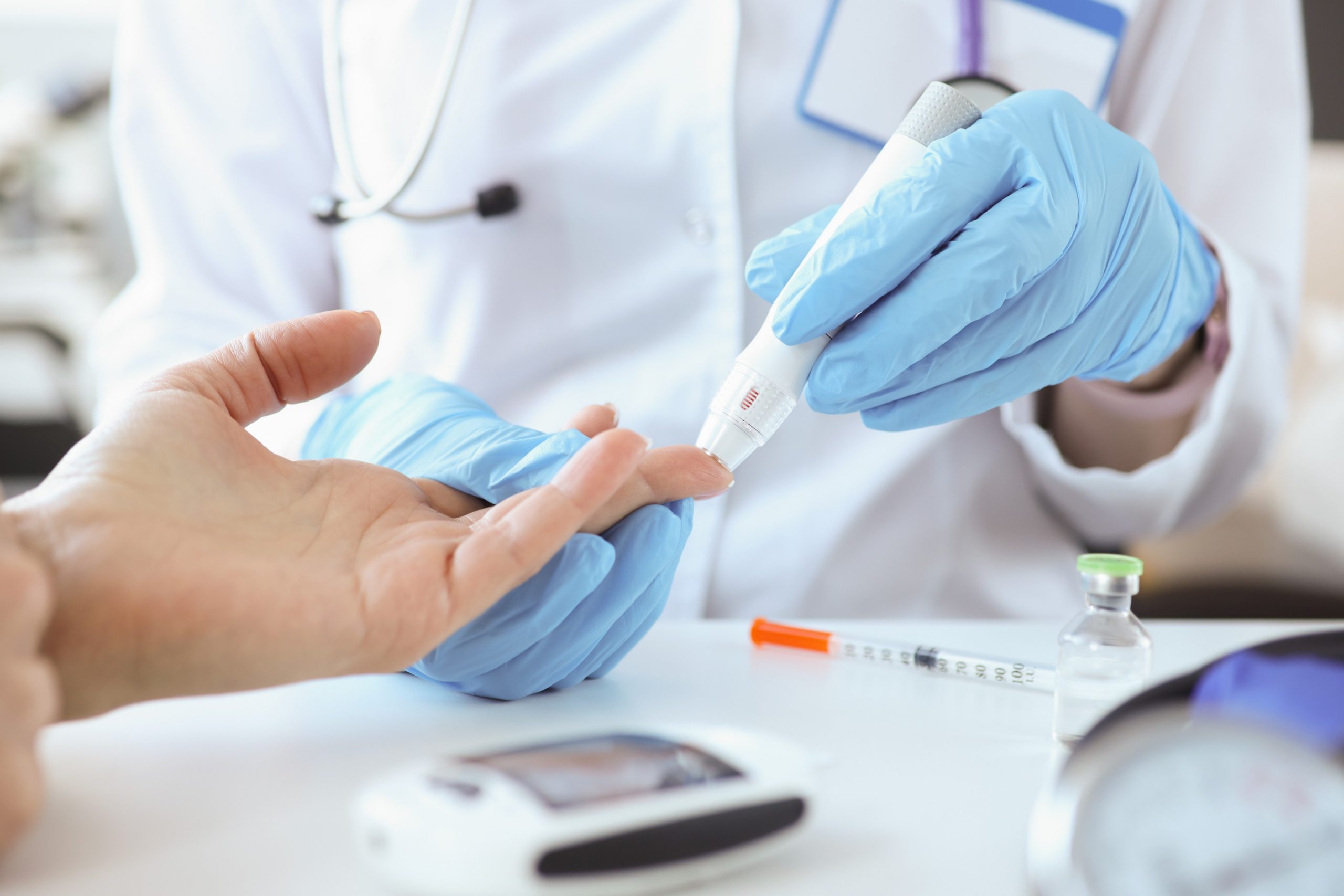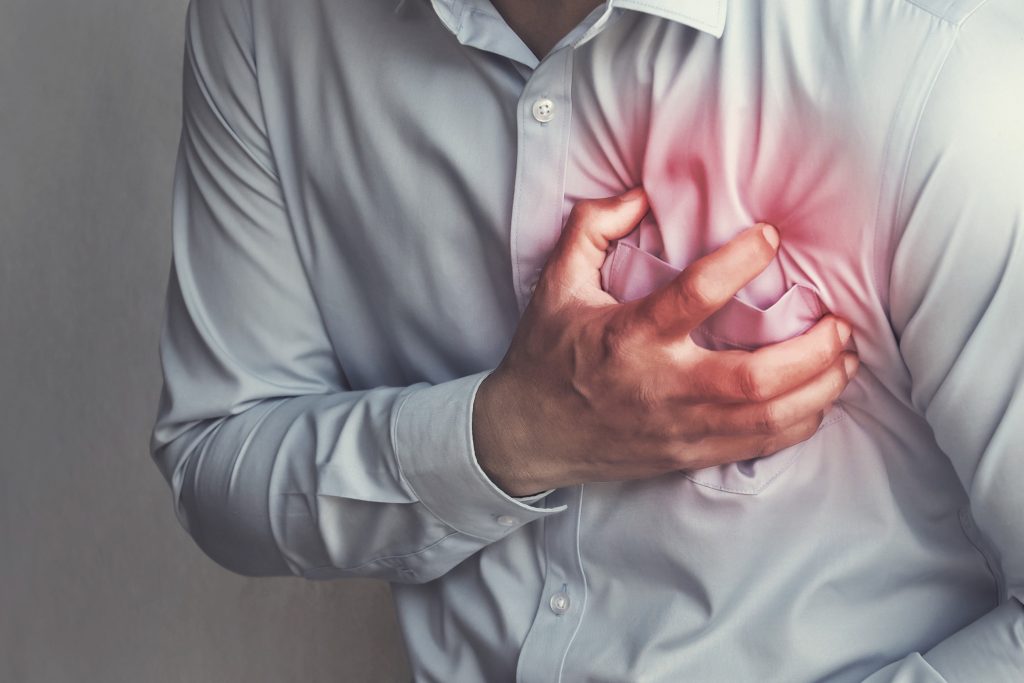How a Rainy Night and Beyoncé Kept DC Metro Running
August 9, 2023
In the captivating world of music and entertainment, artists wield a unique power that extends beyond the boundaries of the stage, leaving an indelible mark on the hearts and minds…

High cholesterol and stroke are related because high cholesterol levels can lead to the development of fatty deposits in the blood vessels, which can increase the risk of stroke by restricting blood flow to the brain. Managing cholesterol through lifestyle changes and medication can help lower the risk of stroke.
Strokes are caused when a blood clot blocks the artery carrying blood to the brain. This can happen because the artery has reduced space due to high cholesterol buildup. When cholesterol levels are high, the risk of atherosclerosis, a condition in which plaque builds up in the arteries, increases. This can cause blockages that can lead to a stroke. Lowering cholesterol levels may reduce the risk of atherosclerosis and stroke. When cholesterol levels are high, the blood is more likely to clot. This can cause block blood flow to the brain and result in an ischemic stroke.
Heart attacks can be a warning sign that you have high cholesterol levels. Heart attacks are caused by a buildup of plaque in the arteries, or “hardening of the arteries.” This buildup restricts the blood flow from your heart to the rest of your body.
Chest pain or shortness of breath can be symptoms of high cholesterol levels. Chest pains may occur when you accumulate plaque in your arteries, affecting blood flow. Chest pain or shortness of breath can cause dizziness, lightheadedness, fainting, and exhaustion.
Fatigue and weakness can be signs of high cholesterol levels. You become more susceptible to fatigue and weakness when you have high cholesterol and don’t consume enough saturated fat. You may also experience a feeling of tightness in your chest, neck, or jaw muscles.
Pain in your calves or thighs while walking can indicate high cholesterol levels. When you have high cholesterol, plaque can build up on the walls of your arteries, putting pressure on the nerves. This can cause a condition called peripheral vascular disease (PVD). The pain is usually felt when you exercise and goes away when you rest.
Accumulation of cholesterol in your arteries can cause the skin to take on a yellowish tint and can also cause it to be itchy and scaly. If you have this symptom, you may notice that your skin and the whites of your eyes appear pale yellow.
High blood pressure can be a sign of high cholesterol levels. High blood pressure can increase the risk of atherosclerosis or plaque buildup. High blood pressure may indicate the presence of plaque in the arteries.

Eating a lot of saturated fats, such as dairy products, beef, lamb, and pork fat, is one of the leading causes of high cholesterol. A diet high in trans fats can also contribute to high cholesterol. Trans fats are artificial fat in foods like margarine and commercial baked goods.
Your genes can also play a role in developing high cholesterol. Although genetics is not always the cause of high cholesterol, you may have a family history of it. High cholesterol can run in your family because certain genes are linked. You may have a higher chance of having high cholesterol if your parents or siblings have it.
As you age, your body and cholesterol levels may also change. As you age, you are more likely to have increased cholesterol because of various health issues. An increase in weight may indicate that your cholesterol levels are rising above average.
Unhealthy lifestyle habits like drinking alcohol or smoking can increase your risk of developing high cholesterol. Alcohol can increase your cholesterol levels by increasing the amount of fat in your blood.
Existing conditions such as liver diseases and diabetes can increase the risk of developing high cholesterol. A liver disease like hepatitis can produce chemicals in your body that increase cholesterol. Diabetes also increases your risk of developing high cholesterol by increasing the amount of bad fat (LDL) in your blood.
Your cholesterol levels may increase if you take certain medications, such as steroids or oral contraceptives. Steroids like cortisone and dexamethasone can increase the amount of cholesterol in your blood.
Hormone therapy, heart surgery, and invasive surgical procedures can also increase high cholesterol. Hormone therapy may increase your risk of having high cholesterol. Estrogen treatments and synthetic substitutes for female hormones can cause this. Other factors that can cause a spike in cholesterol include using birth control pills and the removal of the ovaries before menopause. Heart surgery to treat angina or to repair an irregular heartbeat may also increase your risk of developing high cholesterol due to the changes in your metabolism after surgery.
Changing your diet is a big step you can take to lower your levels of cholesterol. A diet rich in vegetables, fruits, and whole grains can lower cholesterol levels. Eating fiber-rich foods can also reduce your risk of high cholesterol levels. Limiting foods like beef, egg yolk, beef liver, and fatty fish like mackerel or salmon can keep your cholesterol from climbing to dangerous levels. Avoiding high-fat dairy products, like whole milk, cheese, and butter, is also essential.
A healthy lifestyle can be maintained by keeping physically active. Exercise lowers your cholesterol levels and reduces the risk of high cholesterol. Activities like dance, sports, walking, swimming, and jogging can help you maintain healthy cholesterol levels.
Smoking can increase bad cholesterol (LDL) levels. It can also raise blood pressure and heart rate, which increases the risk of a heart attack. Quitting smoking is an essential step in managing your cholesterol levels. Smoking is one of the leading causes of early death from heart disease globally.
The link between excessive alcohol consumption and high cholesterol is clear. Excessive drinking can increase your risk of high cholesterol. Beer fats can cause your cholesterol levels to rise. Alcohol may also increase your chances of high blood pressure, resulting in heart problems.
Some prescription medications can help lower your cholesterol levels if they are high. These statin medications include atorvastatin, lovastatin, pravastatin, rosuvastatin, and simvastatin. Statins help your liver produce fewer LDLs by slowing the production of cholesterol. When used with a healthy diet and exercise routine, statin medications can help reduce your cholesterol levels.

The warning signs of a stroke are almost the same as those of a heart attack. Symptoms that may indicate a stroke include:
If you don’t have a cardiac event but still have numbness or tingling in your limbs, you may be experiencing a stroke. This happens very quickly and without notice. The lack of blood flowing to the brain cuts off sensation in the affected areas.
Sometimes, a stroke victim may have speaking issues because the parts of the brain involved with speech do not get enough blood flow. The part of the brain most likely to be affected is Broca’s area, which controls complex speech.
Another possible symptom of a stroke is difficulties with your eyesight. You may notice trouble seeing out of one eye or your vision blur. This is caused by blood vessels in the brain being blocked and causing the affected areas not to get enough blood flow.
Many people think of headaches as a symptom of a bad day, but it may be a sign that something may be wrong. A sudden severe headache can also be an early warning sign of a stroke. It could be caused by poor blood flow to the brain and possibly oxygen not flowing correctly.
If you suddenly become confused and unable to function, this could be an early warning sign of a stroke. The blood flow could cause the brain to be cut off. The brain needs oxygen to function normally. You may start experiencing confusion problems and memory lapses resulting from oxygen deficiency in your brain.
If you have had a stroke, clot-busting medications may be used to break up the blood clots that have formed in the arteries. This can improve your chances of survival and make a recovery more likely. Suppose it is determined that an underlying condition caused the stroke. In that case, medical attention may be needed to decide whether or not you need additional treatment for whatever is causing your stroke.
In some cases, doctors may insert stents or other catheters into blocked arteries to widen them. These stents can help improve blood flow to your brain during a stroke and improve your chances of recovery. In some cases, the stent can be removed after several months following the stroke.
If the clot is very large or located in a difficult area to reach, it can be removed by a medical professional. A procedure called thrombectomy allows for the removal of the clot mechanically. This will often reduce blood pressure and reduce the damage to your brain caused by the stroke.
Stroke rehabilitation may include physical, speech, and occupational therapies to help you regain functions that were lost as a result of the stroke, as well as to help prevent recurrences. If you have been diagnosed with a stroke, you must report any side effects from treatment to your doctor. You should also pay attention to any new symptoms you develop or are experiencing, especially if you feel that treatment has not worked for your particular case.
Knowing the symptoms of a stroke is essential, as it can happen to anyone without warning. If you experience any symptoms listed in this article, you must see a doctor immediately. You may be unable to determine if it is a stroke alone. Any severe symptoms should be addressed immediately. Stick to a healthy lifestyle that includes a proper diet, exercise, and relaxation techniques to help lower your chances of experiencing a stroke.